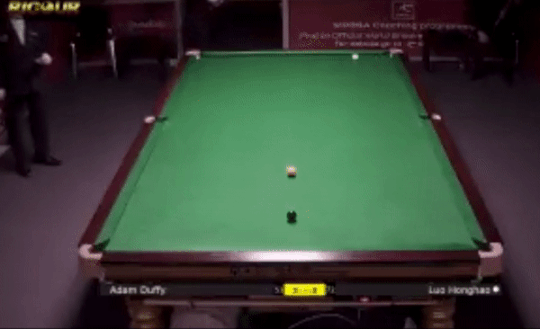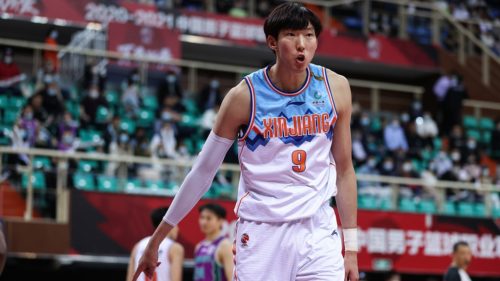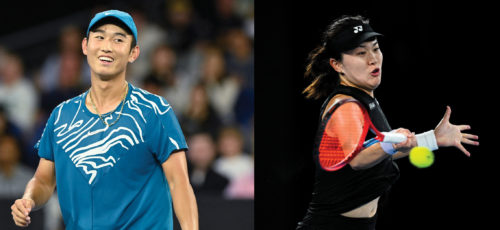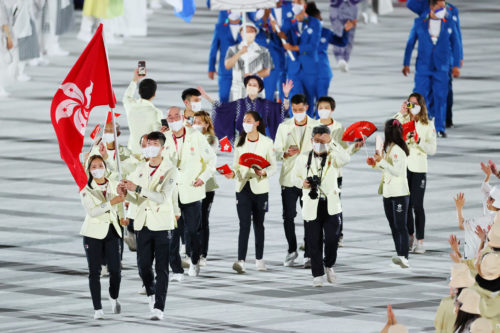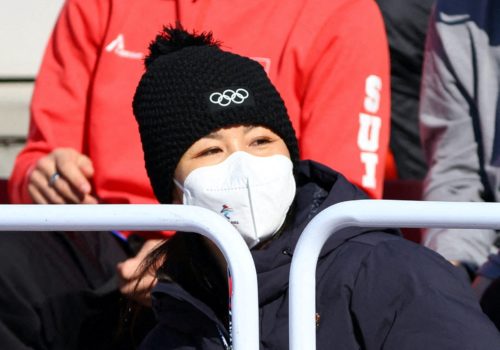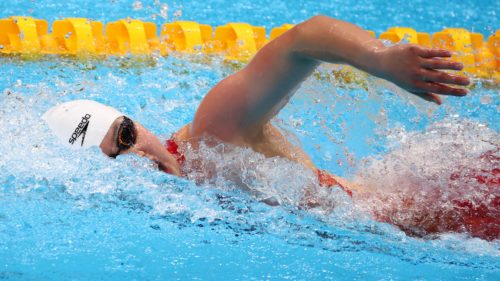UFC and ONE Championship in uncertain turf war, and snooker’s hand-washing controversy
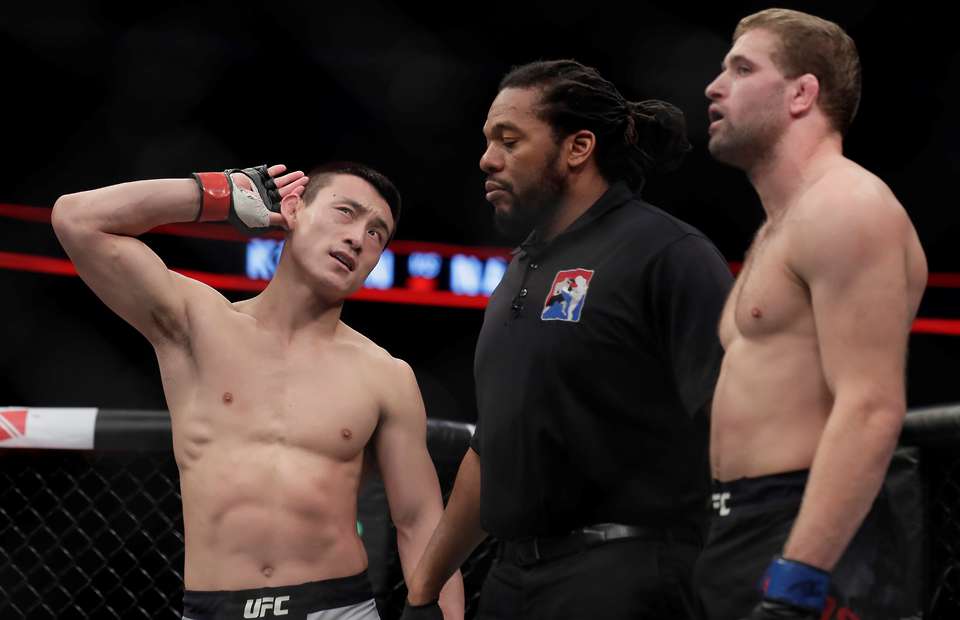
The China Sports Column is a The China Project weekly feature in which China Sports Insider Mark Dreyer looks at the week that was in the China sports world. Pictured: Song Kenan 宋克南, after beating Bobby Nash at UFC Shanghai.
With UFC set to make its Beijing debut next month — following its China debut last November in Shanghai — it’s a worrying time for some of the more established MMA promotions in this part of the world.
Chief among them is Singapore-based ONE Championship, which bills itself through an almost daily delivery of press releases as “the largest global sports media property in Asian history,” though quite what that means — or how it could be verified — is somewhat unclear.
But while the hype may be slightly irritating, it’s par for the course in the world of combat sports, and ONE Championship — with events in Macau, Guangzhou, and Shanghai already this year — has firmly established itself as several steps ahead of the competition.
However, a damning look at the reality behind the façade has cast doubt on how sustainable their growth path might be, while also asking questions of the sport’s promotion-heavy model in China, a territory that is not known for generating solid ticket revenues.
SB Nation’s Bloody Elbow blog went through ONE’s financial statements with a fine-tooth comb, and the results are not pretty.
Accumulated losses stood at $67 million at the end of last year — and were growing fast. Meanwhile, revenue in 2017 was only $12 million, with sponsorship and ticket sales both decreasing year-on-year. As the author writes, “What the filings reveal is a promotion whose finances don’t quite match with their bold claims.”
A follow-up piece in Forbes does even more digging, pointing out that when you exclude the opaque category of “barter revenues,” which have climbed to more than 60% of the total income, growth has “basically stagnated” for ONE at a time when it should be exploding.
It’s a shame, because ONE has a lot of things going for it. It’s just signed former UFC lightweight champion Eddie Alvarez, with MMA legend Demetrious Johnson, who recently ended a six-year reign as UFC flyweight champion, also joining this week.
Earlier this month, the series announced its latest funding round of $166 million, with an impressive line-up of backers, including Sequoia Capital and Temasek. One would assume that ONE’s investors have, at the very least, read through the financials and seen something they like — though it wouldn’t be the first time that major players have been taken in by hyperbole, something at which ONE excels.
GM officials, for example, were left red-faced after Chevrolet massively overpaid on a sponsorship deal with Manchester United — largely as a result of a disingenuous survey that implied the club had 109 million “followers” in China.
But ONE Championship isn’t the only game in town.
ONE’s 15 events last year each cost an average of $395,000 to stage; UFC’s costs in Asia will be at least that amount, as it looks to make a bigger and louder impact. But ticket sales at sporting events in China are tough, while broadcast revenues are still way down compared with more developed markets.
And while there is a whole slew of Chinese MMA fighters, none has yet truly captured the public’s imagination domestically, let alone further afield. That doesn’t instill confidence that sharply increased revenues from China are just around the corner.
Legendary boxing promoter Bob Arum waded into China on the back of Zou Shiming’s 邹市明 two Olympic titles promising to capture an audience of 300 million; Zou has now retired and boxing is only marginally further ahead than before Arum arrived.
ONE, UFC, and the others are all banking on the fact that, this time, the great potential of the Chinese market can actually be realized.
~
At the other end of the spectrum from cage fighting is snooker, although occasionally things can get testy there, too.
The scene: China’s Luo Honghao 罗弘昊 was playing Adam Duffy in a first-round English Open clash on October 15, which Luo edged 5-4. But as the 18-year-old Chinese player held out his hand to shake Duffy’s at the end — as is customary — Duffy breezed past him and left the arena.
Ordinarily, it wouldn’t get a second thought and would have been passed off as annoyance at losing the game, perhaps, with Duffy having blown a 3-0 lead.
But then he took to Twitter: “Also if any body watching wondered why I didn’t shake his hand before and after the decider is because he went to the toilet and never washed his hands!”
The post was later deleted, but the damage had been done, especially after Duffy doubled down with multiple replies to his detractors, including insults about the male anatomy.
Pipe down helmet
— Adam Duffy (@A147D) October 15, 2018
After the story gained some traction with Chinese media, two separate claims emerged: Duffy said the two players had stood side-by-side at the urinals together and he had witnessed Luo walk out before washing his hands; Luo, meanwhile, said he had simply visited the bathroom to have a rest between frames.
Only the players know the truth. But the incident — precipitated, let’s not forget, by a Luo Honghao win — is yet another reminder for a sport that used to be dominated by Europeans but now has multiple Chinese players on tour, with 21 currently in the world’s Top 100, that a new era has dawned.
Ding Junhui 丁俊晖 has been leading China’s snooker charge for more than a decade and, having based himself in Sheffield for years, has become fully integrated into the tour. Additionally, with his unassuming personality, it’s hard to imagine him having any enemies.
But with Chinese players taking more spots — and with Europeans, like Duffy, losing their place on tour as a result — it’s perhaps inevitable that something of a “them and us” atmosphere might develop.
Thanks for the waistcoat last night Adam Duffy! Don’t worry I washed my hands😃👍🏻 pic.twitter.com/JkAmxjBpAr
— Neil Robertson (@nr147) October 16, 2018
Former world No. 1 Neil Robertson, who is still a top 10 player, didn’t help things with his own tweet at Duffy about washing his hands in a clear reference to the dispute. But with demographics at the top of the game only likely to tilt more toward Chinese players, it’s an issue that snooker authorities would do well to tackle now if they want the sport to keep growing globally in the future.
The China Sports Column runs every Friday on The China Project. Follow Mark Dreyer @DreyerChina.
